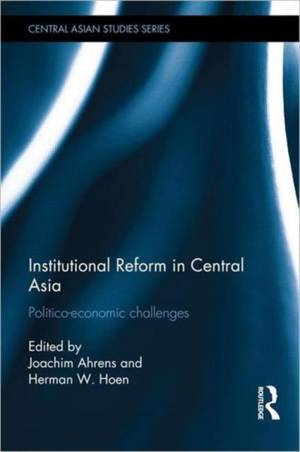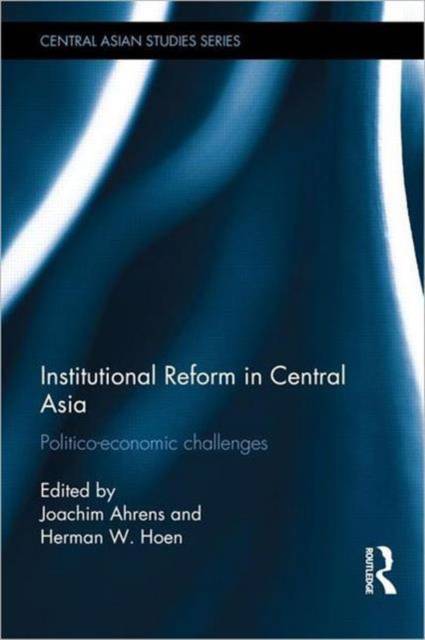
- Afhalen na 1 uur in een winkel met voorraad
- Gratis thuislevering in België vanaf € 30
- Ruim aanbod met 7 miljoen producten
- Afhalen na 1 uur in een winkel met voorraad
- Gratis thuislevering in België vanaf € 30
- Ruim aanbod met 7 miljoen producten
Institutional Reform in Central Asia
Politico-Economic Challenges
Omschrijving
The countries of Central Asia are increasingly the focus of intense international attention due to their geopolitical and economic importance as well as their unsettled transition processes. The region faced enormous challenges when the Soviet Union disintegrated, and this book focuses on the reforms of the institutional environment that have been largely neglected.
Through an interdisciplinary approach, the book explores key aspects of institution building as well as economic and political governance in Central Asia. Contributors from a variety of disciplines, such as economics, political economy, political science, sociology, law, and ethnology, investigate the challenges of institutional transition in a non-democratic region. The book discusses how the lack of effective institution building as well as rule enforcement in the economic and political realms represents one of the key weaknesses and drawbacks of transition, and goes on to look at how crafting market institutions will be of utmost importance in the years ahead.
Making an important contribution to understanding of political-economic developments in Central Asia, this book is of interest to students and scholars of political economy, comparative economics, development studies and Central Asian studies.
Specificaties
Betrokkenen
- Uitgeverij:
Inhoud
- Aantal bladzijden:
- 290
- Taal:
- Engels
- Reeks:
- Reeksnummer:
- nr. 27
Eigenschappen
- Productcode (EAN):
- 9780415602006
- Verschijningsdatum:
- 6/09/2012
- Uitvoering:
- Hardcover
- Formaat:
- Genaaid
- Afmetingen:
- 157 mm x 236 mm
- Gewicht:
- 589 g

Alleen bij Standaard Boekhandel
Beoordelingen
We publiceren alleen reviews die voldoen aan de voorwaarden voor reviews. Bekijk onze voorwaarden voor reviews.










